Over 80 percent of people in RVs want to be able to access the internet while camping. And almost 60 percent of them work while on a trip.
Luckily, there are multiple ways you can access the internet, and we’ve compiled the best options. Whether you want to camp for fun or work remotely, accessing the internet while camping is important.
Before you take your next camping trip, consider if you’ll want internet access. If so, compare your options for getting and maintaining a connection.
Ways to Get Internet While Camping
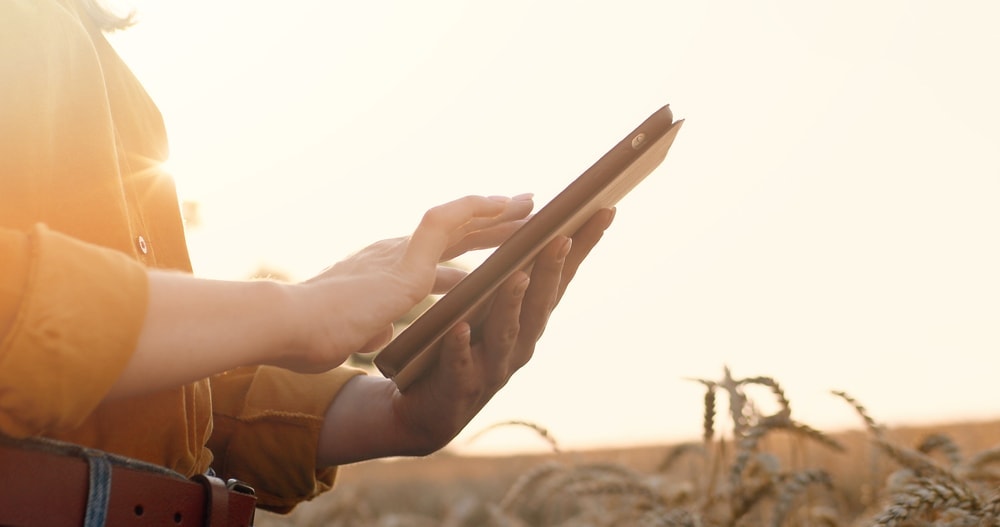
When you go camping, you should spend some time appreciating the outdoors. But you may still want to have some connection to the outside world.
If you want to work, contact family, or stream some media, you can do so on your camping trip. Luckily, there are multiple things you can do to get the internet while camping. Consider a few excellent options for how to get WiFi while camping.
1. Choose a Campsite With WiFi
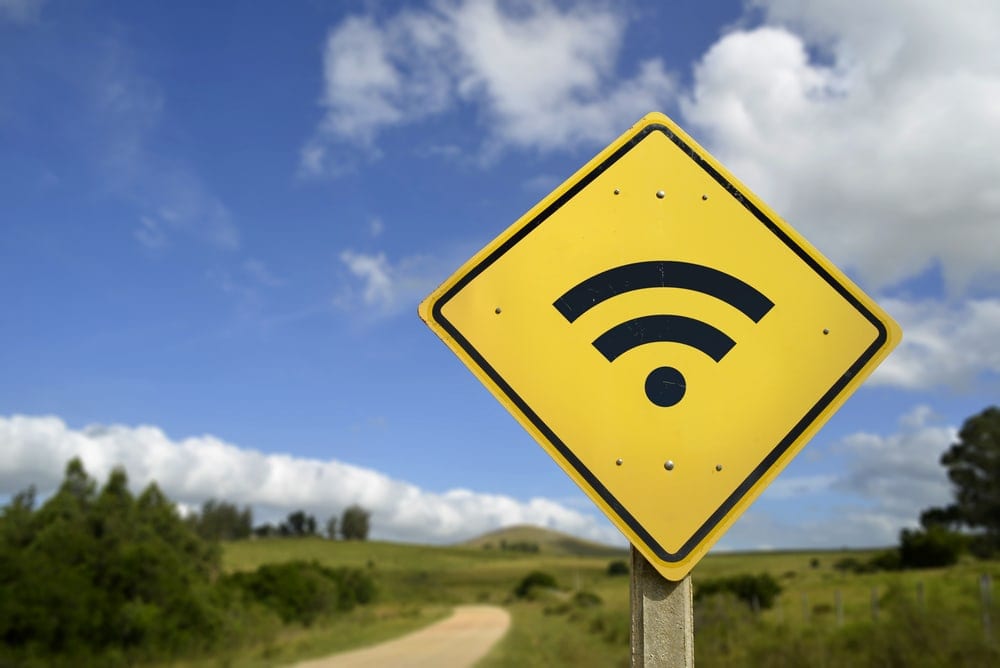
One of the easiest ways to access the internet while camping is to find a campsite with a WiFi connection. You won’t have to worry about bringing your own router or finding another way to connect.
Instead, you can arrive at the campgrounds and figure out how to get on that network. Then, you can get online at any time as long as you’re close enough to the campsite. Whether you want to check your email in the morning or call a relative at night, you’ll have the internet you need.
Consider where you want to camp so that you can search for a site with WiFi. If you want consistent internet access on your trip, going to campgrounds with WiFi is a great option. You can still enjoy the outdoors without worrying about providing your own internet.
2. Camp Near a Cafe
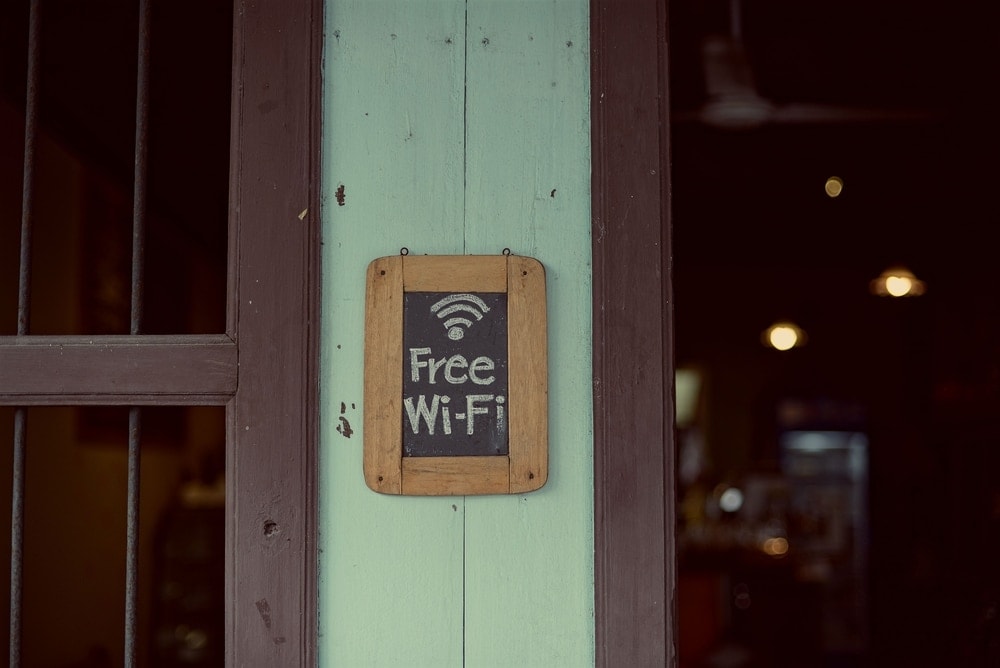
Another option to consider is to find campgrounds near a cafe or other spot with free WiFi. You won’t be able to access the internet from camp, but you won’t have to go too far for it.
Finding a nearby cafe can be a great option if you want internet access as a backup. You may not need to use the internet all of the time. However, you know you can easily get an internet connection if you need one.
Another benefit of using a cafe for the internet while camping is that you can use it as an excuse to stock up on coffee or tea for the day. If you don’t want to rough it as much, going to a cafe for breakfast can help you start your day much easier.
3. Install WiFi in Your RV
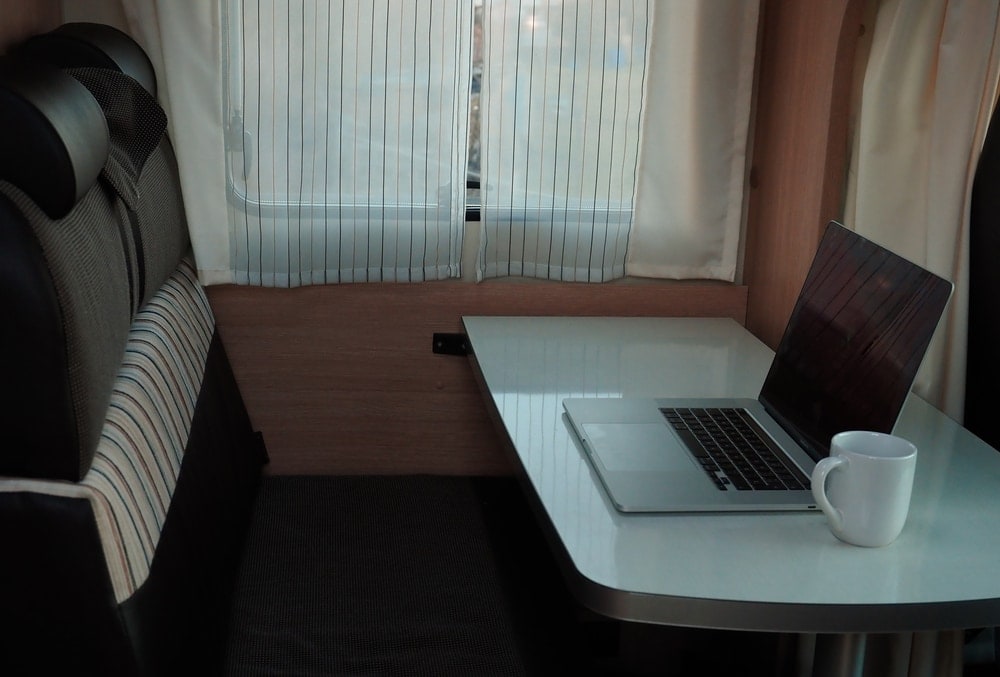
If you want to be able to access the internet while camping anywhere, consider installing WiFi in your RV. You can find many RVs that already have WiFi set up, or you can add it once you buy the vehicle.
Either way, this option provides more flexibility than relying on other sources for camping WiFi. If you decide to venture away from your initial location, you can still have an internet connection. Now, you may need to run your RV to access the internet.
The connection may also not be as consistent as a cafe or going to campgrounds with WiFi. Still, it can make planning your trip easier since you won’t have to factor the internet into your location decisions. Then, you can camp when and where you want.
4. Pair With a WiFi Extender
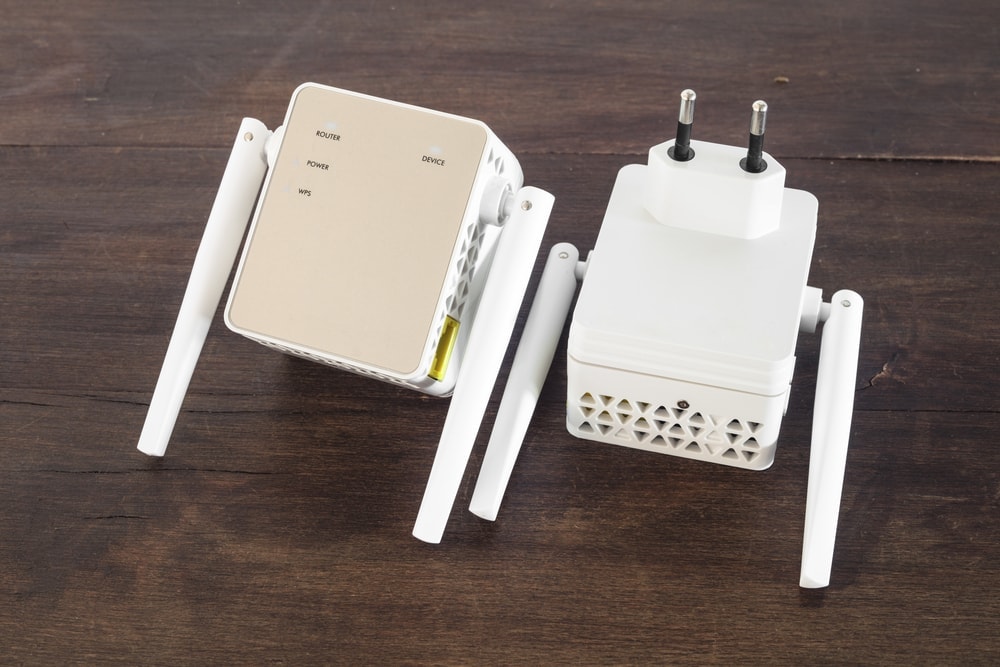
If you have a modem with an internet connection, you can amplify it with a WiFi extender. The extender will increase the coverage area and improve the connection overall.
While many people use them in their homes, you can use one with your RV WiFi. Then, you can have a better signal when in and around your RV. And you may even be able to maintain the connection a little ways away from your vehicle.
Now, you may not be able to take the connection that far, such as on a trail. However, it can be a good option if you want a stable connection. It can also help if you’re camping with other people that need to use the internet at the same time.
5. Use Your Phone
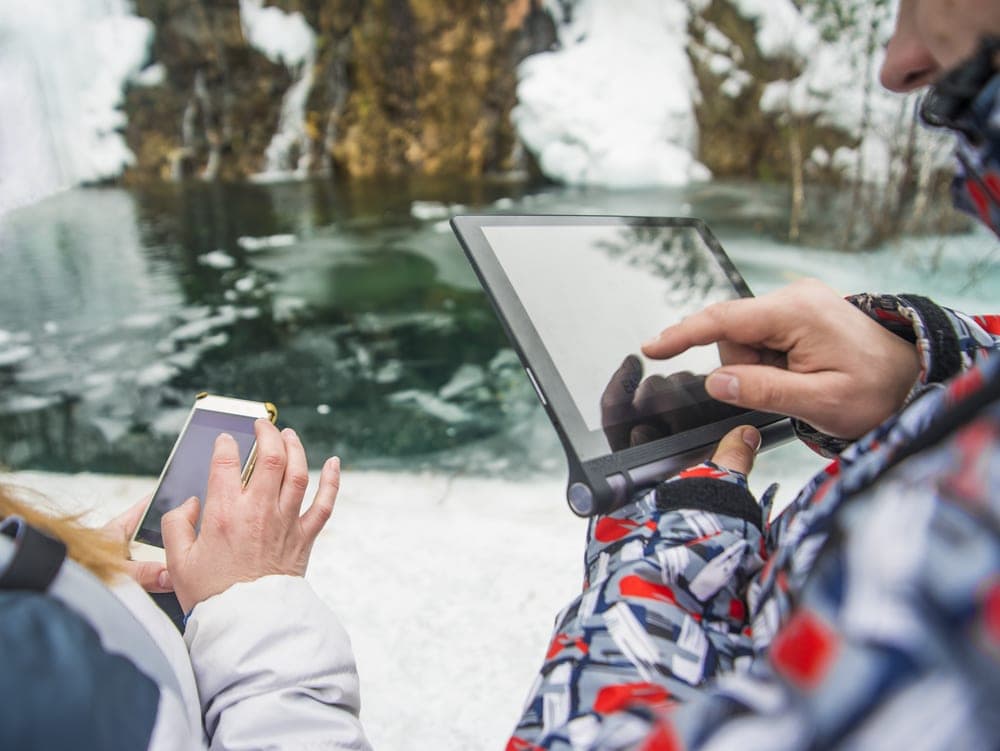
Another flexible option for internet access is your phone. You can use your phone to access the internet in a few ways.
- Browse on your phone
- Tether other devices to it
- Use its mobile hotspot
If you don’t need to do anything crazy, your phone is probably powerful enough to access the internet. However, you can also connect your tablet or laptop to the phone. Tethering uses a cable to connect the devices, while a hotspot uses a wireless connection.
Each browsing option is worth considering. But you should make sure your phone has enough battery to sustain the connection. You also want to verify that your cell phone plan will have coverage and internet access where you’ll be camping.
6. Buy an Internet USB
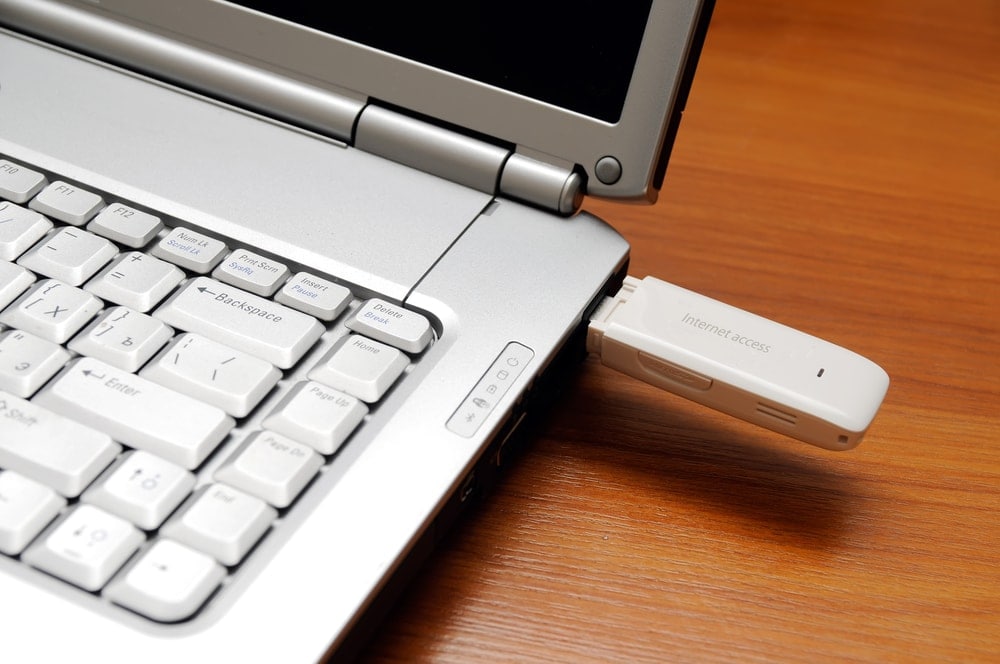
If you don’t want to find mobile phone plans that offer a good hotspot connection, you can buy an internet USB. It’s a small device that uses the same USB connection as many other accessories and devices.
The USB connects to basic internet, usually a 3G connection. You can use it to access the internet to check your email or browse, but it might not be enough for some activities. The USB also may not work well in remote areas or on trails.
However, it can be an excellent option for getting a signal at your campsite. Then, you can still do what you need to do, but you don’t have to worry about the connection. And you don’t need to install anything or rely on other people to access the internet.
7. Get a Portable WiFi Router
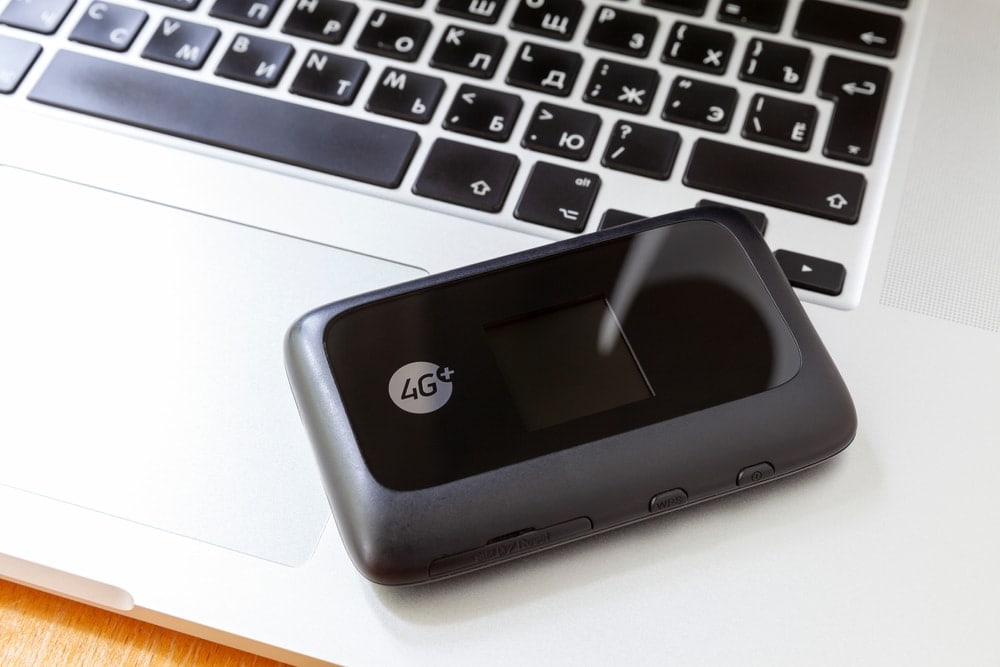
A portable WiFi router can use the same cell phone tower and connection as your phone or internet USB. However, they may be more reliable than the other options. That can come in handy if you need to have a video call or do serious work.
Unfortunately, they do need to have a connection to your cell phone network. If you go too far into the wilderness, you may not be able to connect to the router.
Be sure to check your internet service plan to view the coverage area. Then, you can make sure the portable router will work where you plan to use it. If it won’t work, you can consider some of the other options out there.
8. Opt for Satellite WiFi
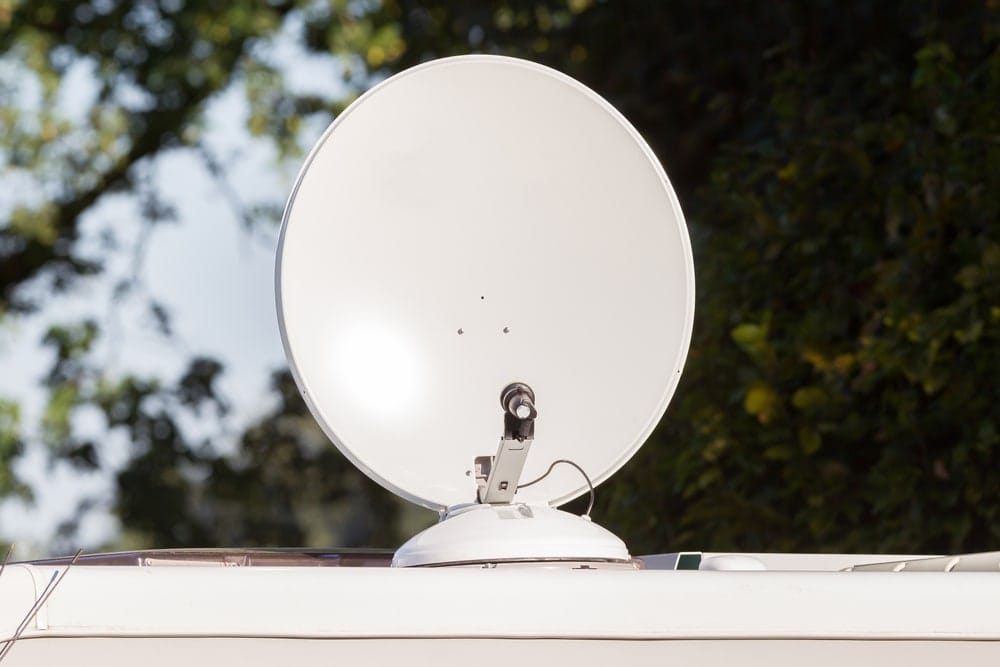
If you plan to camp for a while, you may want to find satellite internet providers. Satellite internet for camping is a great choice because it will provide a better connection than the other methods.
Because it uses satellites, you don’t have to worry about having a nearby cell phone tower. And you don’t need to find campgrounds with WiFi. If you want to camp in a remote area, you’ll still be able to access the internet.
However, portable satellite internet can be expensive. The average plan costs around $100 per month, and you can access broadband speeds. But you also have to account for the cost of buying or renting internet equipment, which can cost hundreds of dollars.
FAQ
Knowing how to access the internet while camping is useful, but you may still have questions. We understand that it can be hard to decide which method is best.
Here are some questions we found and their answers to help you access the internet on your next camping trip.
How Do You Get Internet on Boondocking?
To get internet when Boondocking, you will need a cellphone service provider and a signal booster or antenna. You can then set up the hotspot on your phone, and you’ll use the booster or antenna to access an internet signal.
When choosing your service provider, check out their coverage map. Not all providers have coverage everywhere. Consider where you want to go boondocking and select a provider with coverage in the area.
Do Campgrounds Have WiFi?
Some campgrounds have WiFi, but not all do. If you want to rely on campgrounds for internet access, consider a couple of things.
1. Where the campground is
2. The campground’s popularity
If there aren’t any campgrounds with WiFi where you want to camp, you can choose another internet access method or change your trip. But you may want to avoid popular campgrounds because they may have more internet users, making it hard to use the internet quickly.
What Is the Best WiFi for an RV?
The best WiFi for an RV depends on where you plan to take the RV. If you’ll stay near towns or in campgrounds with WiFi, you won’t need much of a connection. However, you may want to use satellite WiFi or a strong cellular plan in more rural areas.
Think about where you want to camp and what you’ll need to do online. Then, you can make sure you have plenty of speed to handle your internet needs. And if one option doesn’t work, you can experiment until you find one that does.
Can You Work Remotely While Camping?
Whether you work remotely all of the time or want to do so part-time, remote work makes it easier to go camping when you want. Fortunately, you can still work while on a camping trip, but you may need a good internet connection.
Of course, you can tether your laptop to your phone or use the hotspot. You can also use WiFi from the campgrounds or a local cafe. And if you’re camping in a rural area, you might want to invest in satellite internet or a cell plan with more data.
What’s the Best Cell Network to Get on the Internet While Camping?
Verizon offers the best coverage when it comes to getting on the internet while camping. The coverage network is better than other cell service providers, even in remote areas.
T-Mobile can be a suitable option if you will be camping near metropolitan areas. The network near population centers can be excellent, but the coverage may not extend far out. AT&T is somewhere in the middle. You can even combine two of them to use two hotspots and ensure a more stable connection.







